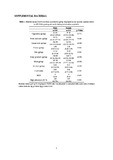Mostrar el registro sencillo del ítem
Interaction effect of the Mediterranean diet and an obesity genetic risk score on adiposity and metabolic syndrome in adolescents: the HELENA study
| dc.creator | Seral-Cortes, Miguel | es_ES |
| dc.creator | Sabroso-Lasa, Sergio | es_ES |
| dc.creator | Miguel Etayo, Carmen de | es_ES |
| dc.creator | González Gross, Marcela | es_ES |
| dc.creator | Gesteiro, Eva | es_ES |
| dc.creator | Molina Hidalgo, Cristina | es_ES |
| dc.creator | Henauw, Stefaan de | es_ES |
| dc.creator | Erhardt, Éva | es_ES |
| dc.creator | Manios, Yannis | es_ES |
| dc.creator | Karaglani, Eva | es_ES |
| dc.creator | Widhalm, Kurt | es_ES |
| dc.creator | Kafatos, Antonios | es_ES |
| dc.creator | Béghin, Laurent | es_ES |
| dc.creator | Meirhaeghe, Aline | es_ES |
| dc.creator | Salazar-Tortosa, Diego | es_ES |
| dc.creator | Ruiz, Jonatan R. | es_ES |
| dc.creator | Moreno, Luis A. | es_ES |
| dc.creator | Esteban, Luis Mariano | es_ES |
| dc.creator | Labayen Goñi, Idoia | es_ES |
| dc.date.accessioned | 2021-06-16T09:26:36Z | |
| dc.date.available | 2021-06-16T09:26:36Z | |
| dc.date.issued | 2020 | |
| dc.identifier.issn | 2072-6643 | |
| dc.identifier.uri | https://hdl.handle.net/2454/39949 | |
| dc.description | Incluye material complementario | es_ES |
| dc.description.abstract | Obesity and metabolic syndrome (MetS) are worldwide major health challenges. The Mediterranean diet (MD) is associated with a better cardiometabolic profile, but these beneficial effects may be influenced by genetic variations, modulating the predisposition to obesity or MetS. The aim was to assess whether interaction effects occur between an obesity genetic risk score (obesity-GRS) and the MD on adiposity and MetS in European adolescents. Multiple linear regression models were used to assess the interaction effects of an obesity-GRS and the MD on adiposity and MetS and its components. Interaction effects between the MD on adiposity and MetS were observed in both sex groups (p < 0.05). However, those interaction effects were only expressed in a certain number of adolescents, when a limited number of risk alleles were present. Regarding adiposity, a total of 51.1% males and 98.7% females had lower body mass index (BMI) as a result of higher MD adherence. Concerning MetS, only 9.9% of males with higher MD adherence had lower MetS scores. However, the same effect was observed in 95.2% of females. In conclusion, obesity-related genotypes could modulate the relationship between MD adherence and adiposity and MetS in European adolescents; the interaction effect was higher in females than in males. | en |
| dc.description.sponsorship | Miguel Seral-Cortes, the corresponding author, has received funding from the Iberus Talent Pre-doctoral fellowships 2018, under the European Union’s H2020 research and innovation programme under Marie Sklodowska-Curie grant agreement No 801586. Pilar de Miguel-Etayo was supported by ISCIII-CB15/00043 (Centro de Investigación Biomédica en Red de Fisiopatología de la Obesidad y Nutrición, CIBERObn). This work was part of the HELENA Study (http://www.helenastudy.com/). We gratefully acknowledge financial support of the European Community Sixth RTD Framework Programme (contract FOOD-CT-2005-007034). The data for this study were gathered under the auspices of the HELENA project, and further analysis was additionally supported by the Spanish Ministry of Economy and Competitiveness (Grants RYC-2010-05957 and RYC-2011-09011), the Instituto de Salud Carlos III, Centro de Investigación Biomédica en Red de Fisiopatología de la Obesidad y Nutrición (CIBERObn). | en |
| dc.format.mimetype | application/pdf | en |
| dc.language.iso | eng | en |
| dc.publisher | MDPI | en |
| dc.relation.ispartof | Nutrients, 2020, 12, 3841 | en |
| dc.rights | © 2020 by the authors. Licensee MDPI, Basel, Switzerland. This article is an open access article distributed under the terms and conditions of the Creative Commons Attribution (CC BY) license. | en |
| dc.rights.uri | http://creativecommons.org/licenses/by/4.0/ | |
| dc.subject | Adolescents | en |
| dc.subject | Genetic risk score | en |
| dc.subject | HELENA | en |
| dc.subject | Mediterranean diet | en |
| dc.subject | Metabolic syndrome | en |
| dc.subject | Sex | en |
| dc.title | Interaction effect of the Mediterranean diet and an obesity genetic risk score on adiposity and metabolic syndrome in adolescents: the HELENA study | en |
| dc.type | Artículo / Artikulua | es |
| dc.type | info:eu-repo/semantics/article | en |
| dc.contributor.department | Ciencias de la Salud | es_ES |
| dc.contributor.department | Osasun Zientziak | eu |
| dc.rights.accessRights | Acceso abierto / Sarbide irekia | es |
| dc.rights.accessRights | info:eu-repo/semantics/openAccess | en |
| dc.identifier.doi | 10.3390/nu12123841 | |
| dc.relation.projectID | info:eu-repo/grantAgreement/European Commission/Horizon 2020 Framework Programme/801586 | en |
| dc.relation.projectID | info:eu-repo/grantAgreement/MICINN//RYC-2011-09011/ES/ | en |
| dc.relation.publisherversion | https://doi.org/10.3390/nu12123841 | |
| dc.type.version | Versión publicada / Argitaratu den bertsioa | es |
| dc.type.version | info:eu-repo/semantics/publishedVersion | en |




